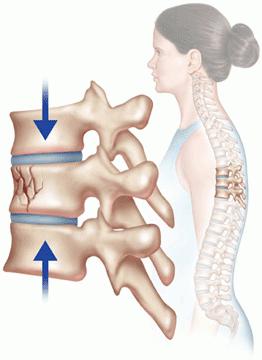Fracture of the heel: productive treatment and sad consequences
Of course, for many people, heel fracture canseem a far-fetched and ridiculous phenomenon, which is rare in modern medicine, however, this is far from the case. According to statistics, characteristic trauma is 3 - 4% of all violations of the integrity of the bones of the skeleton.
The severity of this pathology is characterized bypeculiarities of displacement of fragments and damage to the elements of the joint, as evidenced by the obtained X-ray image. Thus, a fracture of the heel in a mild form is not accompanied by a displacement of the fragments and injury to the articular surfaces; moderate form of gravity inherent in the displacement of fragments, but without damage to the joints; but for severe fractures, the presence of displacement and damage to the joint surfaces is characteristic. One way or another, determine the nature of the fracture can only be an expert on the basis of X-ray research.
First, you need to find out which symptomsaccompany a characteristic violation of the integrity of the skeleton. For this clinical picture, first of all, the swelling and intense pain syndrome, which extends to the Achilles tendon region and the entire foot, is characteristic. The mobility of the foot can both persist and be disturbed, but it all depends on the nature of the visible damage. Displacement of fragments of the calcaneus bone is accompanied by a partial preservation of the ability to support, but here the fracture of the upper part of the calcaneal hill completely immobilizes the characteristic patient. That is why it is necessary to know what heel fracture is possible: marginal, isolated and compression, and also with displacement and without displacement.
If after performing an X-ray for consultationa specialist is diagnosed with a "heel fracture", treatment should be immediate. Again, the intensive care regimen depends entirely on the specificity of the lesion.
If the heel fracture is not accompanied by an offsetfragments of bone, then there is a conservative method of treatment, that is, without surgical intervention. For mild forms of fracture, bed rest is necessary, as well as the application of gypsum to the knee for a period of 3 weeks to 2 months, but these times can vary significantly depending on the nature of the disease. As a supplement physiotherapeutic procedures, therapeutic gymnastics and massage are recommended, and in some clinical pictures also wearing orthopedic adaptations in the form of special insoles.
But in fact a fracture of the foot can provide for andbone displacement. In such cases, there are some difficulties, especially if we are talking about compression fractures of the calcaneus body, which are characterized by the predominance of a large number of "fragments", serious deformation and damage to the adjacent articular surfaces. The main task of productive treatment is that it is necessary not only to return the former form to the heel, but also quickly restore the painless function in all the joints of the foot, and this is much more difficult. That is why a heel fracture requires surgical intervention, and then a long rehabilitation period, that is, the restoration of the habitual work of this part of the skeleton.
If the above-described heel fracture is observed,rehabilitation involves wearing orthopedic shoes, performing therapeutic exercises for the development of joints, as well as a systematic visit to physiotherapy procedures.
Thus, the principles of the recovery periodconsist in performing exercises with movements in the subtalar joint, limiting the axial load on the limb throughout the entire rehabilitation period (up to 12 weeks), and imposing a full axial load after the expiration of this period.
Fracture of the heel does not pass without a trace and often reminds oneself of deforming arthrosis of the subtalar joint, deformation of the foot and posttraumatic flatfoot.









